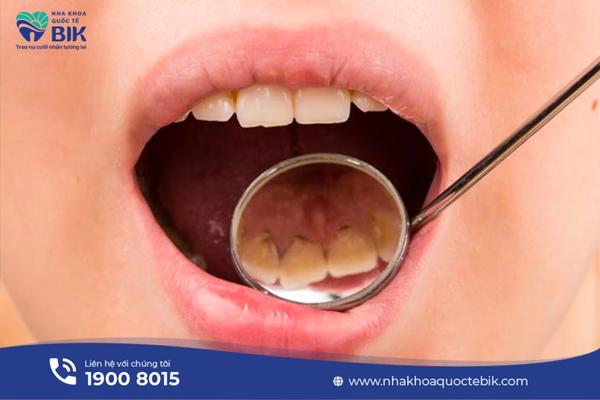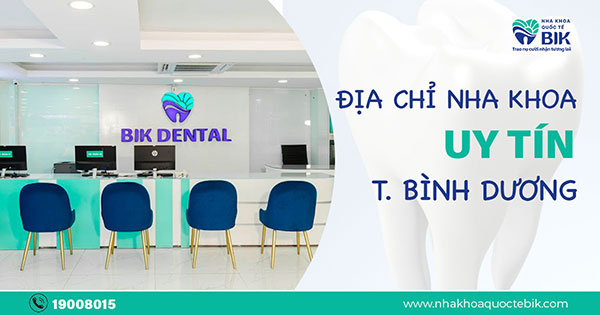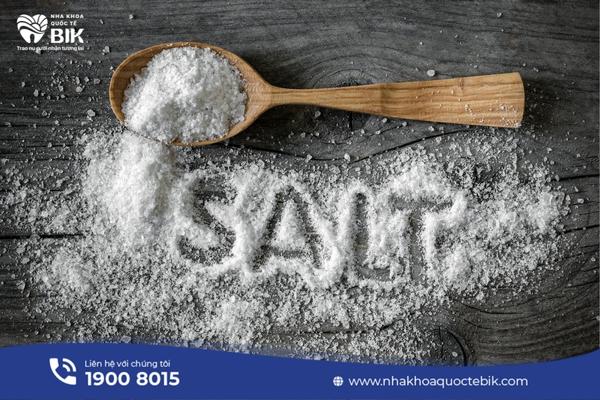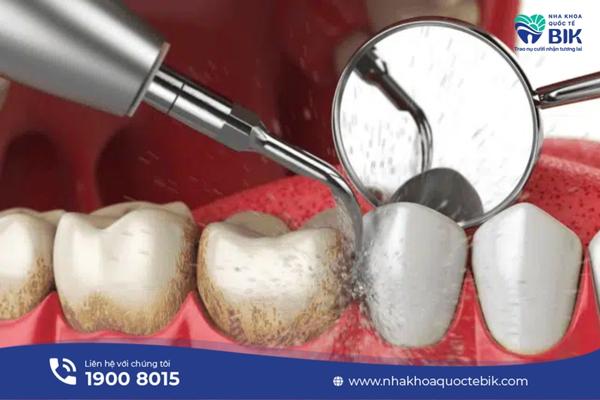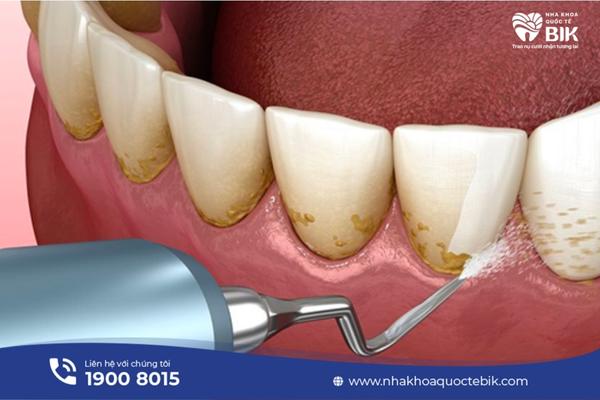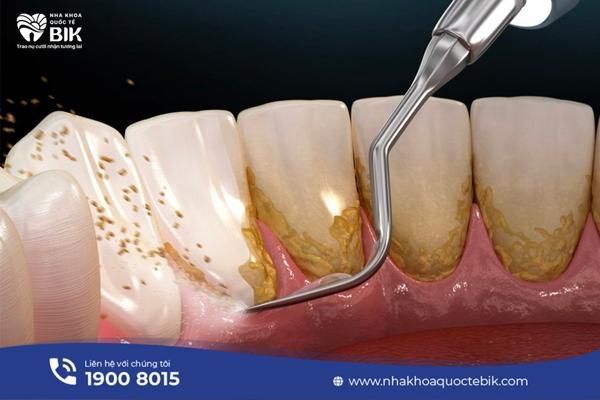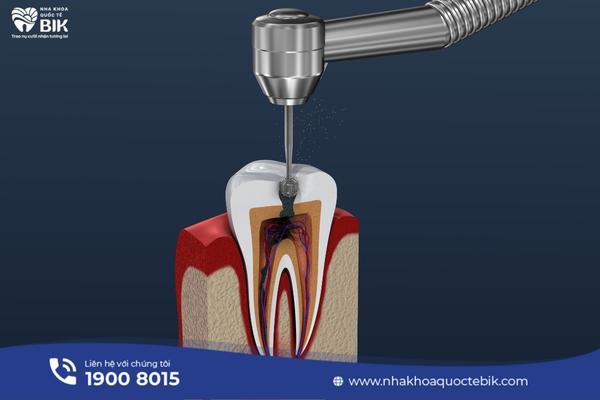
Veneer porcelain is a cosmetic dental restoration method that has been quite popular in recent years. With the criteria of maximally preserving real teeth and bringing maximum aesthetics as well as ensuring effective chewing function, this method is the choice of many people today. With a thickness of only about 0.3 – 0.5mm, is Veneer porcelain durable? This is a question of many customers.
1. What is Veneer porcelain?
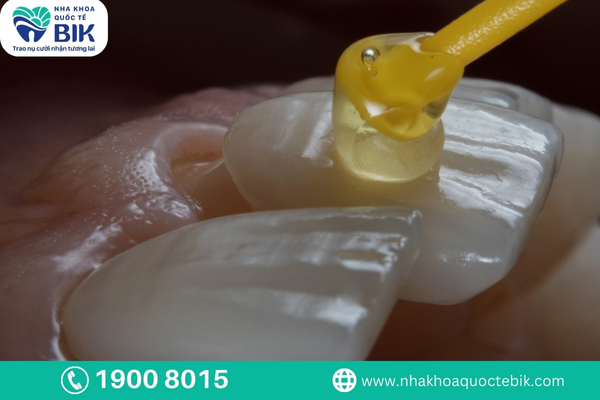
Veneer porcelain technique began to appear in Vietnam about 10 years ago and has gradually become a popular method in recent years. This is a modern dental aesthetic porcelain restoration technique that does not require grinding teeth using ultra-thin Veneer porcelain pieces.
Veneer porcelain pieces can be customized in many color shades with a thickness of only about 0.3 – 0.5mm, helping customers to have a confident, bright smile. To fix this patch on the surface of the real tooth, the doctor must roughen the front surface of the tooth, then use a specialized glue to stick it on. If the roughening step is not performed, the porcelain veneer will not have adhesion and will easily fall off during chewing. To ensure the success of the porcelain veneer process, this technique must be performed by a highly skilled doctor with many years of experience in the profession.
->> See more: Where does Emax porcelain veneer come from? Is it durable?
2. Should I Get Porcelain Veneers?
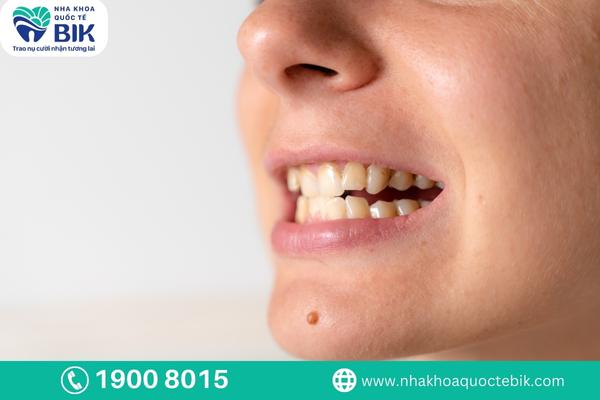
Veneers are not always effective, so doctors often prescribe this method in the following cases to achieve the best results:
– Teeth that are worn or have short roots
– Teeth that are spaced out with gaps less than 2mm
– Teeth that are chipped or broken with a size not exceeding 1/3 of the tooth body
– Teeth that are slightly misaligned, the size of the teeth is not the same
– Teeth that are heavily stained or yellowed and teeth whitening is not effective
->> See more: Does Porcelain Veneers Cause Bad Breath? How to fix it?
3. Is porcelain veneer good?
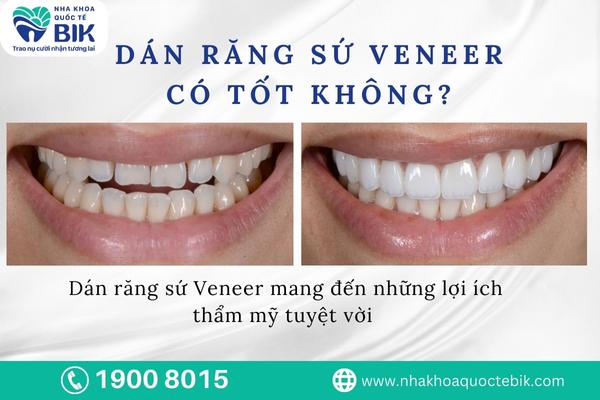
Porcelain veneer brings the following benefits:
3.1. Highly aesthetic
The very thin porcelain veneer is designed with tooth grain details and natural color, so it can bring very high aesthetics. In addition, the chewing function of real teeth is not affected because it only affects the surface of the tooth. However, do not use too much force to avoid breaking or cracking the porcelain piece.
3.2. Maximum preservation of real teeth
Unlike porcelain crowns, which require grinding the tooth stump to support the porcelain crown, when applying porcelain veneers, only a very thin layer needs to be ground to create friction. At this time, the real tooth will be maximally protected, avoiding the case where the structure or enamel is affected, causing other serious complications.
3.3. No pain or sensitivity
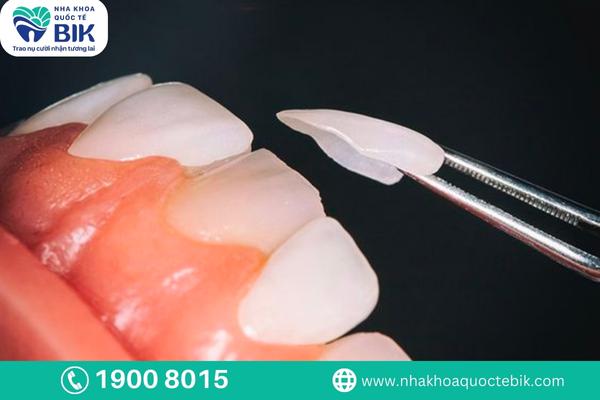
Because only a very small layer of enamel needs to be ground, customers will not feel any pain or sensitivity during the entire process of applying porcelain veneers. Veneer porcelain bonding will be much gentler and more comfortable than other dental procedures, but you should still choose reputable dental facilities to ensure safety and effectiveness after porcelain bonding.
3.4. Short implementation time
The porcelain bonding process usually only lasts about 3-5 days with 2 appointments at the dentist. Doctors will treat the tooth surface, take dental impressions at the first appointment to start making the porcelain veneer at the Labo room. Customers will have the veneer fixed to the tooth at the next appointment, this time lasts about 2 hours for 1 tooth.
3.5. Reasonable cost
Along with the aesthetic and oral health benefits that this method brings, the cost of a Veneer porcelain piece on the market today is completely reasonable and worthy. At BIK International Dental Clinic, customers can have Emax Veneer porcelain applied for 6,000,000 VND/tooth with a 5-year warranty.
->> See more: Who should have Venus porcelain crowns?
4. Are Veneer Porcelain Bonds Durable?
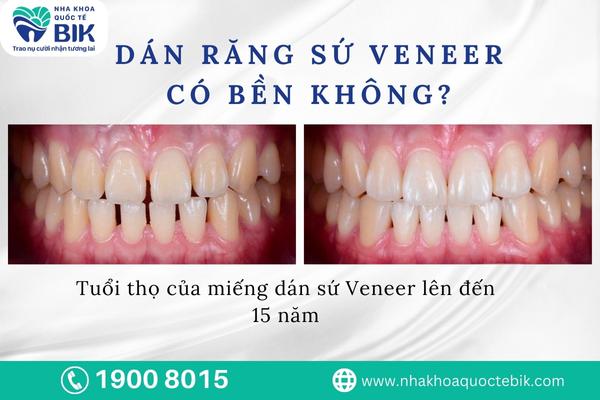
The durability of Veneer Porcelain Bonds depends on the skill and qualifications of the doctor who directly bonds the porcelain. Normally, Veneer porcelain has a lifespan of up to 15 years.
4.1. Factors affecting the lifespan of Veneer
The lifespan of Veneer porcelain usually depends on the following factors:
– Quality of Veneer
– Reputation and quality of the dental clinic
– Professional qualifications and skills of the team of doctors performing the porcelain veneer
– Modern technology and machinery supporting the porcelain veneer process
– Diet and oral care after porcelain veneer
4.2. How long does Veneer porcelain last?
If Veneer porcelain bonding is performed under conditions that meet the above factors, the durability can be up to 10 – 15 years. Because of its long lifespan, this is a method that many people trust and choose.
5. Is porcelain veneer harmful?
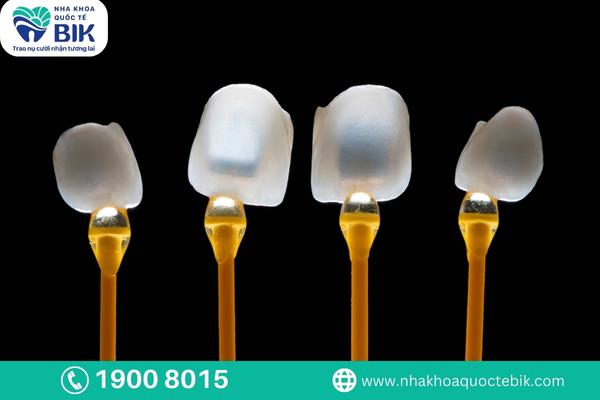
Incorrect porcelain veneer technique can cause the following complications:
5.1. Spinal cord injury
One of the most dangerous complications if porcelain veneers are applied by an unskilled dentist is that the pulp is invaded while grinding the teeth. In fact, porcelain veneers only require removing a very small percentage of the tooth surface, and even in cases of sparse teeth, there is no need to grind the teeth.
Highly specialized dentists will preserve as much of the real tooth tissue as possible to ensure health and chewing ability later. Teeth that are ground down 3/4 are due to the dentist’s inaccurate manipulation, causing deep invasion into the tooth tissue.
5.2. Misaligned bite
In cases where after porcelain veneers are applied, the customer has difficulty biting and tearing food, the bite may have been changed due to the dentist’s inaccurate calculation, causing a disturbance in the bite. At this time, the customer should go to a dental clinic to have the doctor adjust the porcelain veneer to stabilize the bite. If not adjusted promptly, it can cause a number of conditions such as: misaligned temporomandibular joint, jaw fatigue, tooth damage, etc.
5.3. Damage to periodontal tissue
If the porcelain veneer technique is not correct, the porcelain tooth will not adhere tightly to the real tooth, creating a gap and often getting food stuck in it. This position is often very difficult to clean and creates favorable conditions for bacteria to grow rapidly. From there, it can attack the gums and teeth, causing gingivitis, damage to the periodontal tissue around the teeth, bad breath and more dangerously, bone loss.
6. Some notes after applying porcelain veneer
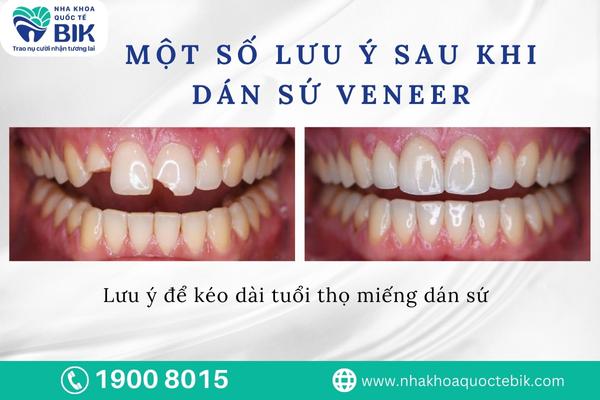
To prolong the life of porcelain veneers, customers should note the following:
6.1. Diet
– Limit the use of dark foods to ensure the whiteness of teeth
– Limit eating sweet, hard, chewy foods or using teeth to open bottle caps, tear packaging, bite nails, …
– Stay away from cigarettes, alcohol and other stimulants
6.2. Oral care
– Use a soft-bristled toothbrush to brush your teeth at least twice a day to ensure the removal of plaque on the tooth surface.
– Combine the use of mouthwash and dental floss to clean between teeth as well as the oral cavity.
– Use toothpaste containing fluoride to help strengthen teeth.
6.3. Regular check-ups
After applying porcelain veneers, customers should pay attention to monitor and see a doctor immediately if there are any unusual signs. In addition, visit the dentist every 6 months to check your oral health.
The durability of porcelain veneers depends largely on the skill of the doctor who directly applies the porcelain veneers. Therefore, customers should look for a reputable dental facility with a team of highly qualified and experienced doctors to maximize the lifespan of the porcelain veneers.


